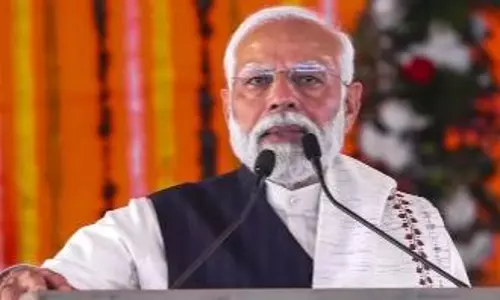
Pakistan strikes back Iran, likely escalation of conflict in the Middle East
text_fieldsIn an escalation of tensions between Pakistan and Iran, the Pakistani military carried out a series of coordinated retaliatory strikes on Thursday against what it termed as "terrorist hideouts" within Iran's Sistan-o-Baluchistan province.
This move came just two days after Iran conducted missile and drone strikes in Pakistan's Balochistan province.
The Pakistani Ministry of Foreign Affairs issued a statement asserting that the military operation, codenamed ‘Marg Bar Sarmachar’ (Death to the Rebels), was a precision strike targeting specific terrorist strongholds. According to the statement, a significant number of terrorists were reportedly killed in the intelligence-based operation.
Pakistan accused Iran of providing safe havens to Pakistani-origin terrorists, self-identified as Sarmachars, operating within Iran's ungoverned spaces. The statement highlighted that despite Pakistan consistently expressing concerns about these safe havens in its engagements with Iran, no substantive action had been taken.
Pakistan claimed to have shared multiple dossiers containing concrete evidence of the presence and activities of these alleged terrorists.
The retaliatory strikes were described as a manifestation of Pakistan's unwavering commitment to safeguard its national security against all threats. The statement emphasized the successful execution of the operation as a testament to the professionalism of the Pakistan Armed Forces. Pakistan vowed to take all necessary steps to preserve the safety and security of its citizens.
Iranian media reported a tragic consequence of the strikes, stating that four non-Iranian children lost their lives when missiles struck a village in the Sistan-Baluchistan province, which borders Pakistan. This collateral damage added a humanitarian dimension to the conflict, further complicating the already strained relations between the two neighbouring nations.
In response to the Iranian strikes, Pakistan had downgraded diplomatic ties and reserved the right to retaliate. The Foreign Office spokesperson Mumtaz Zahra Baloch stated that Pakistan would recall its ambassador from Iran, and the Iranian ambassador, currently in Iran, might not return for the time being.
Pakistan's Foreign Minister Jalil Abbas Jilani conveyed to his Iranian counterpart Hossein Amir Abdollahian that the attack had severely damaged bilateral ties. The official statement from the spokesperson emphasized the violation of Pakistan's sovereignty by Iran as an unprovoked and blatant breach of international law.
The ongoing conflict has raised concerns about regional stability, as both nations possess strategic significance in South Asia. As tensions continue to mount, the repercussions of this exchange of hostilities may have far-reaching implications for the geopolitical landscape in the region.


















